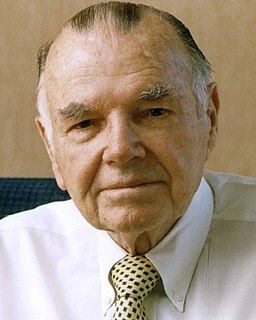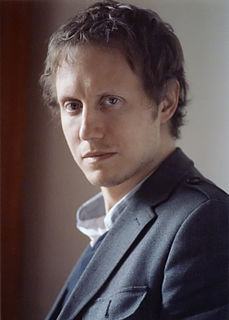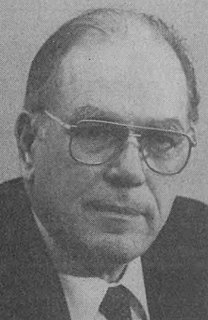A Quote by Ludwig von Mises
The body of economic knowledge is an essential element in the structure of human civilization; it is the foundation upon which modern industrialism and all the moral, intellectual, technological, and therapeutical achievements of the last centuries have been built.
Related Quotes
Tis impossible to judge with much Præcision of the true Motives and Qualities of human Actions, or of the Propriety of Rules contrived to govern them, without considering with like Attention, all the Passions, Appetites, Affections in Nature from which they flow. An intimate Knowledge therefore of the intellectual and moral World is the sole foundation on which a stable structure of Knowledge can be erected.
We should seek to free the moral life from the embarrassments and entanglements in which it has been involved by the quibbles of the schools and the mutual antagonisms of the sects; to introduce into it an element of downrightness and practical earnestness; above all, to secure to the modern world, in its struggle with manifold evil, the boon of moral unity, despite intellectual diversity.
For several centuries Western civilization has had a drive for material accumulation, continual extensions of economic power, termed 'progress'...The longing for growth is not wrong. The nub of the problem is how to flip over, as in jujitsu, the magnificent growth energy of modern civilization into a nonacquisitive search for deeper knowledge of self and nature.
The human imagination may be the most elastic thing in the universe, stretching to encompass the millions of dreams that in centuries of relectless struggle built modern civilization, to entertain the endless doubts that hamper every human enterprise, and to conceive the vast menagerie of boogeymen that trouble every human heart.
For out of this modern civilization economic royalists carved new dynasties. New kingdoms were built upon concentration of control over material things. Through new uses of corporations, banks and securities, new machinery of industry and agriculture, of labor and capital - all undreamed of by the Fathers - the whole structure of modern life was impressed into this royal service.
Pragmatism , in trying to turn experimental physics into a prototype of all science and to model all spheres of intellectual life after the techniques of the laboratory, is the counterpart of modern industrialism, for which the factory is the prototype of human existence, and which models all branches of culture after production on the conveyor belt.
We have progressed in a technological sense, but I'm not so sure whether we have progressed in a civilizational matter - the quality of the civilization has not improved. It's a civilization that's in love with technology but forgetting about the human side of it and the destructive tendency in human civilization has not been faced.
During the last two centuries, there have been many deflations throughout the world. Almost all of them have been good ones precipitated by technological innovation, rising productivity, global capital flows, and sustained economic growth. If farm mechanization cuts the price of wheat, you get a rising living standard. This is good.
I am among those who believe that our Western civilization is on its way to perishing. It has many commendable qualities, most of which it has borrowed from the Christian ethic, but it lacks the element of moral wisdom that would give it permanence. Future historians will record that we of the twentieth century had intelligence enough to create a great civilization but not the moral wisdom to preserve it.
Faith is indeed intellectual; it involves an apprehension of certain things as facts; and vain is the modern effort to divorce faith from knowledge. But although faith is intellectual, it is not only intellectual. You cannot have faith without having knowledge; but you will not have faith if you have only knowledge.
Yoga is as old and traditional as civilization, yet it persists in modern society as a means to achieving essential vitality. But yoga demands that we develop not only strength in body but attention and awareness in mind.The yogi knows that the physical body is not only the temple for our soul but the means by which we embark on the inward journey toward the core.





































